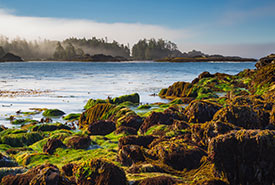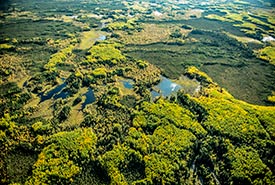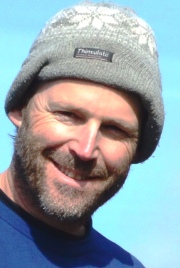By conserving and restoring nature’s foundation we can build a more prosperous future for Canada

Low tide kelp forest (Photo by Mark Smith, Flickr)
We are coming to the end of an era in human history.
For much of our human existence, nature has been in abundance. While even early humans were able to deplete natural resources locally, and some past civilizations collapsed as a result, we have long held the belief that there remained undiscovered and untapped places of abundance. For the most part, our ancestors were right. When great auks and Atlantic cod plummeted in numbers in Europe, more could be found off the coast of Newfoundland. As whales became scarce off the coasts of Japan, more could be found in the waters of Antarctica.
But this era is done. We now have reached far and deep into virtually every corner of our planet. Facing these global limits to nature represents a profound change in our collective human experience.
Not everyone believes, or wants to believe, in the limits of nature. For over 150 years, since the concept of nature’s limits was first introduced to western cultures1, there has been opposition. We denied that fishing would ever change the abundance of cod. We denied that the great auk or passenger pigeon could have possibly gone extinct. We claimed that trees were the culprits causing acid rain2. Today, that denialism of nature’s limits can still be heard in the misguided perception that our economy and ecology are in opposition. That growth can only happen if we continue to tap nature’s bounty without regard to limits and the consequences for future generations.
But what happens when we have finally over-tapped nature? Unfortunately, we are already beginning to see what that world looks like. What happens is that the benefits that nature cradles us in begin to crack and give way. Common species begin to decline. Our climate becomes unstable. Without clean air and water, our economy and society are weakened. The personal and cultural benefits of our ancient connection to the natural world also begin to unravel. When we lose the diversity of plants and animals around us, we lose the richness of our human experience. Awe and wonder need to be manufactured. Connections to place are commodified into connections to product.
If our modern era of human civilization succeeds, it will be because of this: that we recognize nature as our foundation.

Birch River, AB (Photo by NCC)
In some places in Canada, our nature foundation is still strong. We are one of the last nations on the planet to have large areas of intact forests and wetlands that have always been cared for by Indigenous Peoples. These places store vast amounts of carbon and are the breeding grounds for billions of birds. Keeping this foundation of our Earth is important for Canada and for the planet.
In southern Canada, our nature foundation continues to erode. In some regions, nature has been reduced to tiny, broken and scattered pieces. Here, nature needs healing. We need to shore up our foundation by repairing and restoring these ecosystems.
Earlier this year in May, the International Day for Biological Diversity was a day to reflect on this foundation. The theme for 2021 is a call to action: our solutions are in nature. These nature-based solutions have always been there. But in a rapidly changing world, the benefits of nature need to be at the forefront of decision-making. We must act soon. Conserving and restoring nature’s foundation is fundamental to securing a prosperous future for humanity.
The good news is that the solutions found in nature are ready and waiting for us. In places across our country, the Nature Conservancy of Canada has restored wetlands, forests and grasslands. These projects help wildlife, but also provide clean water, pollination and climate stability. Canada has worked with other nations in the past to stop deadly planetary threats like the hole in the ozone layer and acid rain. These actions strengthen our foundation of nature and provide glimpses of a future where we have a very different relationship with our planet. Our challenge today is knowing not what conservation work we need to do, but finding ways to do more of it, and more quickly, so that we can finally outpace the loss of nature.
The next 10 years are our decision decade for nature. It’s an opportunity to bend the curves of climate chaos and the loss of wildlife toward a trajectory that maintains life on Earth and strengthens our foundation. It’s an opportunity to give future generations solid footing to live and to grow.
When nature thrives, we thrive. As we emerge into a post-COVID world, we need a new approach to our society, our economy and our connection with nature. We need a world where decisions that benefit nature are ingrained; where we value and conserve the abundance and diversity of our natural world.
1. Man and Nature published in 1864. George Perkins Marsh challenged the dominant western belief that human impact on nature was generally benign or negligible, and suggested that past civilizations had collapsed and vanished through their degradation of the environment.
2. “80 percent of air pollution comes from plants and trees.” (Ronald Reagan discussing acid rain, August 17, 1980, quoted in Washington Post).


